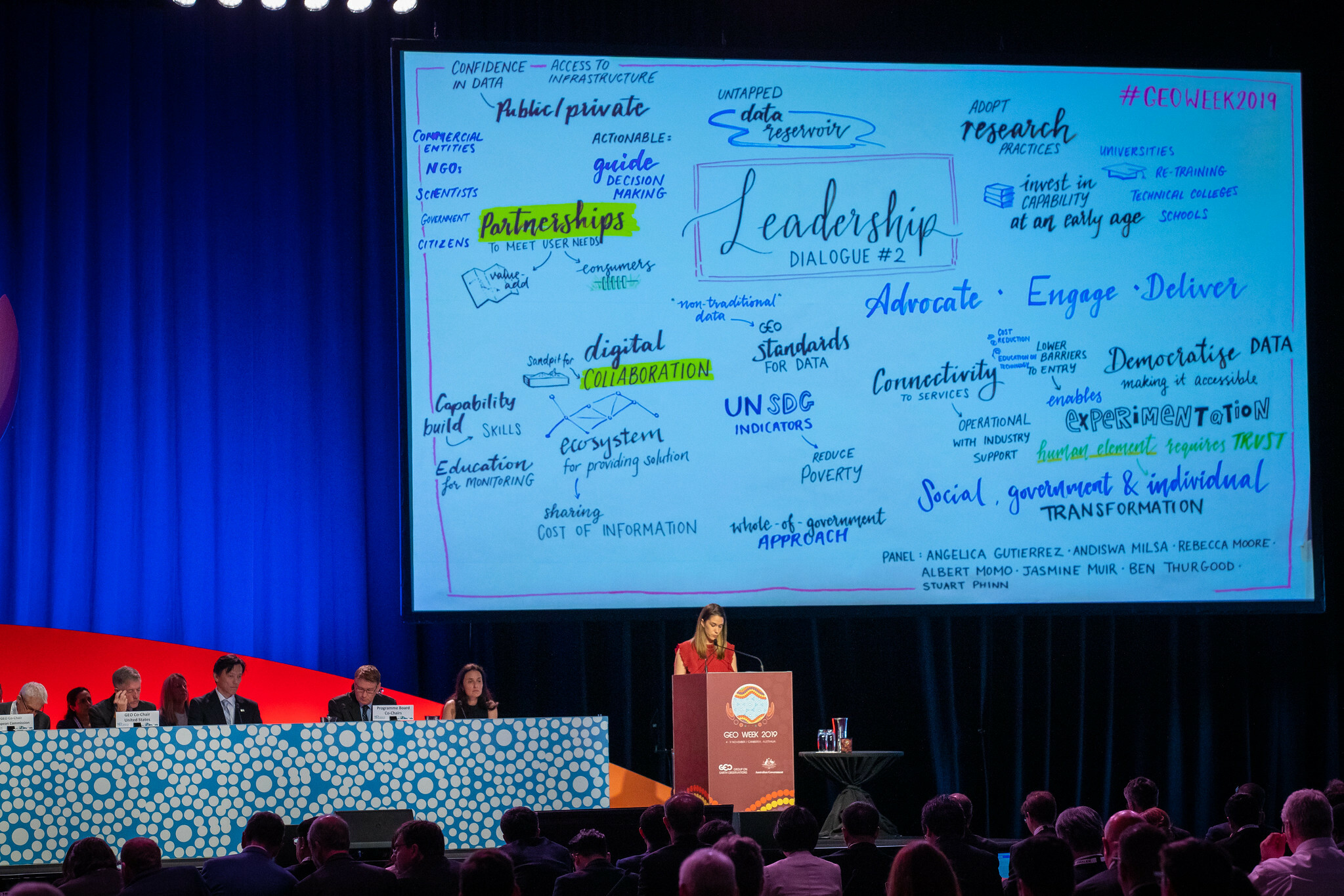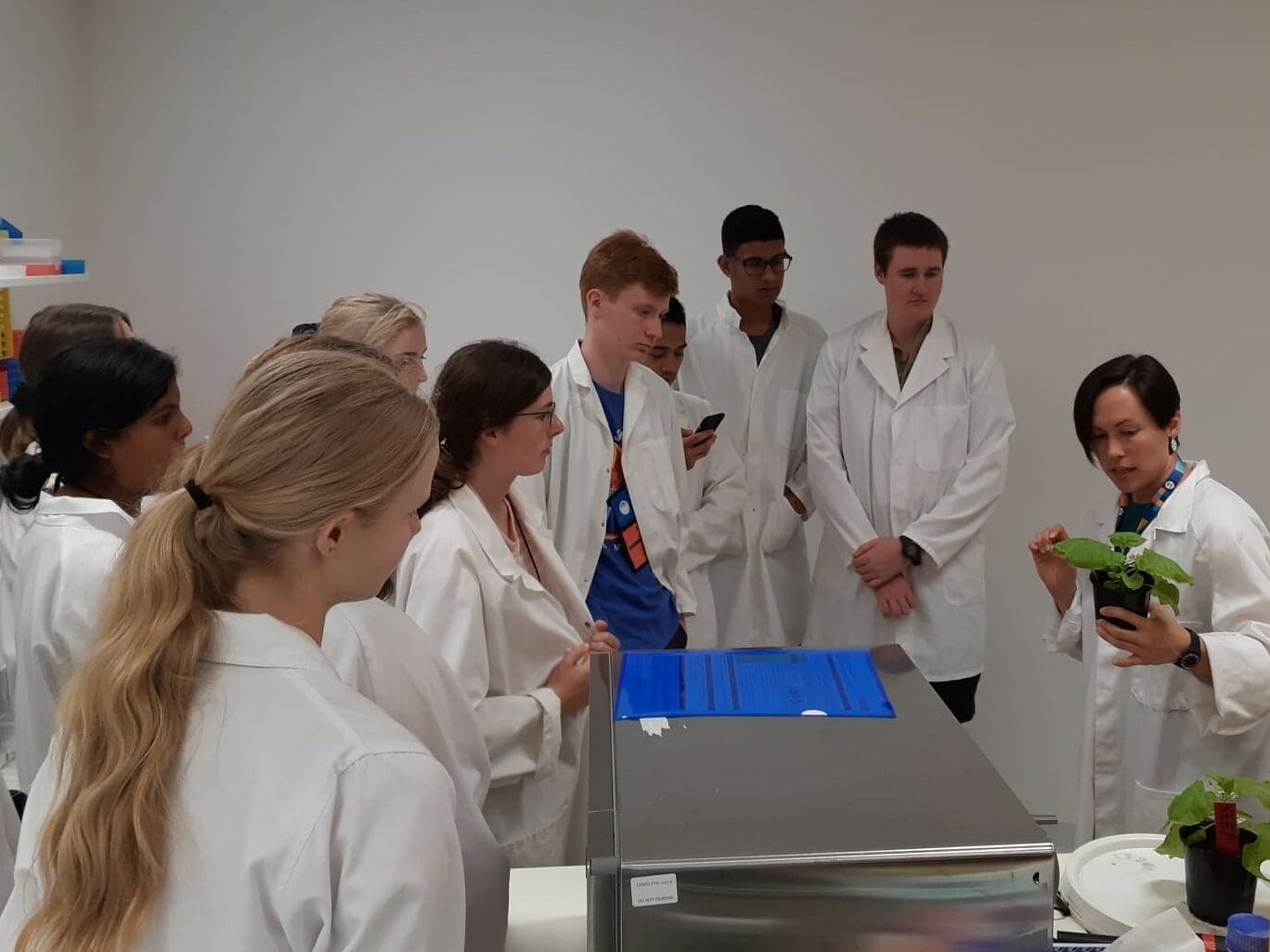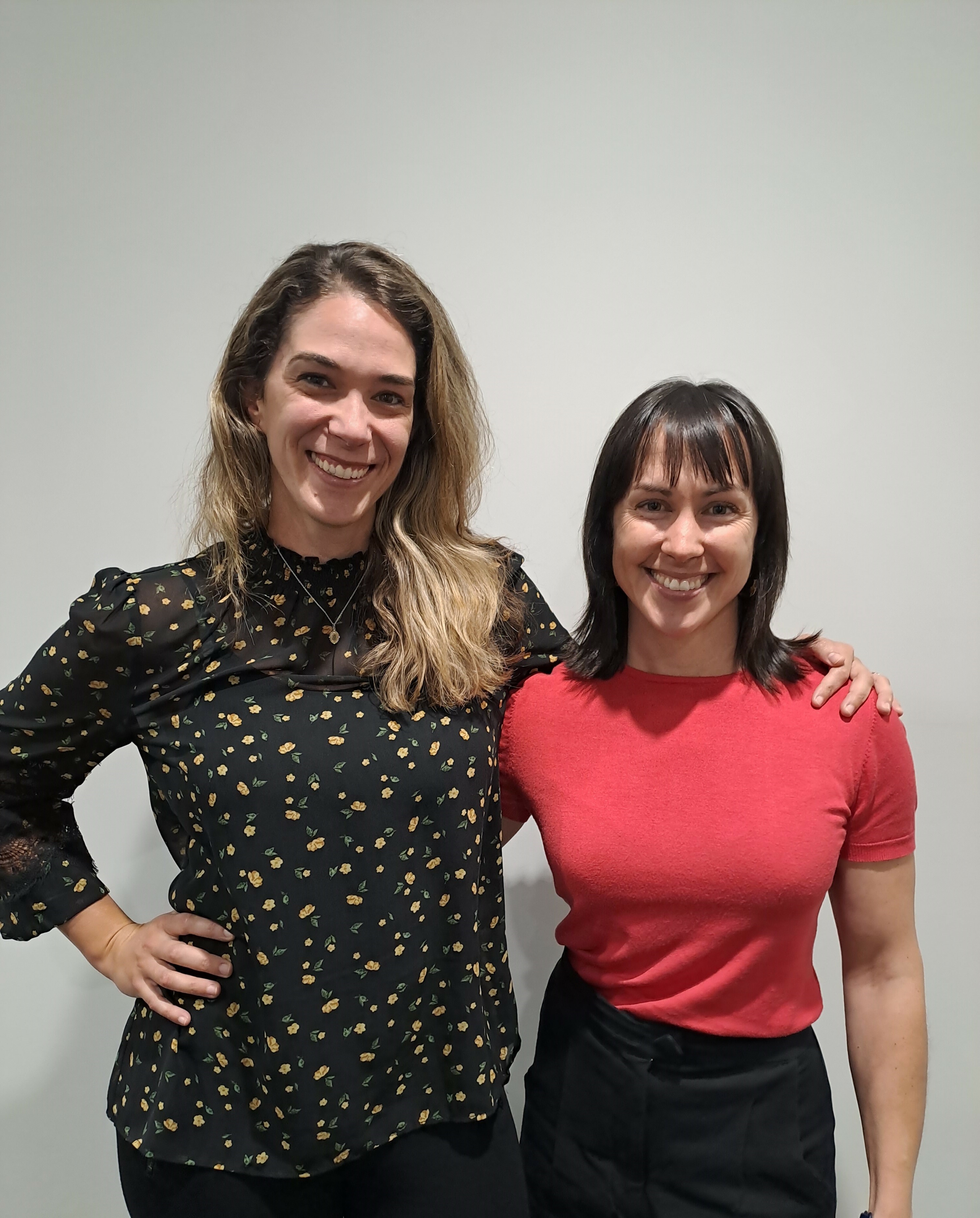We believe in the power of innovation to transform lives. It’s part of our mandate and reflects the theme for International Women’s Day 2023 – DigitALL: Innovation and technology for gender equality.
At Breakthrough Victoria, we are fortunate to have two Superstars of STEM in our team who are working to inspire the next generation of women and girls to embrace a STEM career.
Our Director of Agri-Food, Dr Madeline Mitchell, and Associate Director of Investment Management, Eva Rodriguez, share their experiences and insight as women leaders in STEM.
Tell us about your work as a Superstar of STEM and why it is important to you.
Eva:
Superstars of STEM is a program that is trying to smash stereotypes of what women do in a career in STEM. It is about providing visibility of women that are working in STEM and to change the view of what we do, to inspire the next generation of females and students to join STEM careers.
Maddie:
The program is all about building a cohort of visible role models for the next generation of young, science and technology professionals.
That to me is really important because there is a sense of “you can’t be what you can’t see”. So women, non-binary people and others are not just under-represented in STEM but under-represented traditionally in media and other representations of STEM professions.
With Superstars, we did a whole lot of training around communications and media engagement. But what I really love about the program is getting into schools and talking to teachers, really engaging with students.
Eva:
I think there are problems in Australia when it comes to young girls looking at studying careers in STEM. It is a confidence problem, but it is also a systemic, societal problem. Girls may not think that they might be good at mathematics or that they might be better suited for other careers.
I think it’s about showcasing that that’s not the case. That anyone can pursue a career in these fields. It’s also about showing there can be diversity in choosing a career in STEM. That it is important to understand the fundamentals of the disciplines that also shape your views in life, which allows you to understand the world in a different way, which can be very useful.

The United Nations is focusing on "DigitALL: Innovation and technology for gender equality" for International Women’s Day (IWD) this year. Why is gender equality in innovation and technology important?
Maddie:
Gender equity and diversity inclusion in STEM and technology is extremely important because we have a lot of evidence that diverse, inclusive teams make better decisions, do better science and are more innovative. There are a lot of benefits to those fields and to society as a whole.
There are some interesting examples in the book “Invisible Women” by Caroline Criado-Perez, around the issues we see if we don’t have gender equity and representation. Without these diverse perspectives, we really do miss key things and we end up developing solutions that actually aren’t suitable for everyone.
Eva:
We know that if we don’t bring diversity into the innovation field or in the creation of technology, we are actually developing technology that is biased. For example, one of the things we are seeing as a big issue as we start to use artificial intelligence and machine learning across all aspects of our lives is that people that are behind the development of that technology are also subconsciously bringing the biases that they have, into the technologies they create.
So, we’re creating systems that are themselves biased if we don’t bring diversity of views and people into the creation and design of those systems and technologies.
Those systems are already making decisions for us, so we have to make sure that those decisions have taken into consideration the diversity that exists in our society, for example gender or race.
Maddie:
Yes, there’s a tendency to think that artificial intelligence is somehow unbiased but really, it inherits the biases that we have. This is why what we train it with becomes really important. More generally, these biases can be self-reinforcing in that we have a gender bias that can lead to a gender data gap, where we don't even collect data on gender. But then that gender data gap can also lead to gender bias.
What can be done to help change under-representation of women in digital and technology innovation sectors?
Eva:
I think a lot can be done. The first thing is bringing those issues to light so everyone understands what is actually happening underneath. Often, it is not a case of females not wanting to enter STEM fields, but instead, of them thinking STEM is not suitable due to conditioning.
Maddie:
As a beginning, seeking out diverse role models can be really important because our unconscious biases make associations with what we see all the time. That’s just how they work.
Eva:
There’s an issue of what is known as a leaky pipeline. This is a term that relates to the higher likelihood for women to leave professional careers or “leak” out of the system. We’re seeing a growth in the number of young girls pursuing STEM as a career but a decline, particularly as women become more senior and around motherhood where a lot of them are leaving their position. This is a systemic problem.
We need to make sure there are systems in place to enable women to grow throughout their STEM careers. Understanding why there’s a dropout and balancing promotions for these under-represented groups is key. If we are investing money in getting young girls to enter the fields but they leave prematurely, it means we have failed.
Maddie:
We really need to understand and address the culture and systemic barriers for under-represented groups.
Another example we’ve seen was a more diverse turnout of attendees at STEM conferences during COVID times, likely because they were held solely online. It wasn’t so much about one’s ability to travel or pay for travel, rather that those conferences suddenly became more accessible to everyone.

What is your advice to girls and women about a career in STEM?
Eva:
Go for it if you’re interested! Don’t listen to anyone telling you that you can’t do it because you totally can. Just work hard, find people who can support you and just keep going. If it is your passion, you will succeed and there are lots of examples of females doing incredible work in these fields. So, look for mentors and role models who will help you stay strong on your journey.
Maddie:
Find those role models and network. Through Superstars, I’ve built the most incredible network of people who can offer practical support, encouragement, and people who were there to celebrate the wins. Understanding some of these challenges as systemic can be helpful for when the going gets tough, but for people who are in a suitable position, do what you can to support the ones coming after you.
It is really challenging with this area because inclusion and diversity work often falls to females and people from other underrepresented groups, so we need allies.
We will get further with allies and a solution to equity that will benefit everyone.
Eva:
For people who are still unsure about a career in STEM, look at science and engineering as tools to get to where you want. Consider the application areas of these disciplines that will allow you to work in a multitude of fields in your career path.
What is your message to men who are unsure of how to show their support on IWD or for women in STEM more broadly?
Maddie:
As a start, listen to and make space for women and minority groups in STEM to talk and share their experiences.
Eva:
Some people may be afraid of stepping out into an area that they are not familiar with. I would say, it never hurts to have a conversation, and to educate yourself if you are not. Be empathetic, understand the issues and frustrations so that you can have informed and respectful conversations.
Maddie:
Yes, understanding privilege and doing what you can beyond International Women's Day to support others who may come from a different background and have different experience can be very valuable.
Eva:
Better yet, show your support with action and call out when you see that a line has been crossed.
You can find out more about Superstars of STEM on their website here .
